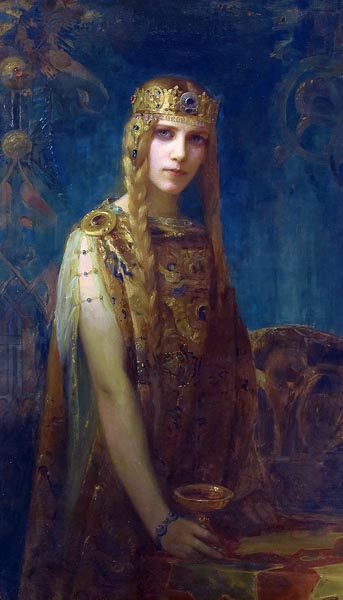Richard Wagner
Tristan and Isolde

‘Isolde, The Celtic Princess (1911)’
Gaston Bussière (French, 1862-1929)
Artvee
Contents
Act I, at sea on the deck of Tristan's ship, during the journey from Ireland to Cornwall
Act II, in King Marke's royal castle in Cornwall
Act III Tristan's castle in Brittany
Translated by Abigail Dyer © Copyright 2020 All Rights Reserved.
This work may be freely reproduced, stored and transmitted, electronically or otherwise, for any non-commercial purpose. Conditions and Exceptions apply.
Please direct enquiries for commercial re-use to dyerabigail@gmail.com.
About the translator:
An historian of Renaissance and Baroque Europe and a classical singer, Abigail Dyer transitioned into translating poetic German operas and art songs. Germans expect to understand every word and nuance of their operas, and it is this immersive experience that she seeks to convey to English-speaking audiences. With her fluency in German, translation expertise, and stage experience, her work aims to assit English speakers in enjoying Germanic operas to their fullest. The work presented here, is her translation of Wagner's Tristan and Isolde. The opera follows Tristan, a knight of the Cornish King Marke, who is tasked with escorting Isolde to marry his liege. However, a love potion erroneously binds Tristan and Isolde into a passionate affair. Their love creates a conflict of loyalty for Tristan and a profound emotional struggle for Isolde. King Marke, unaware of the potion's influence, is devastated by their betrayal. The lovers' tragic relationship culminates in Tristan's mortal wounding and Isolde's heart-wrenching "Liebestod". You may read more about Abigail on her personal website.
